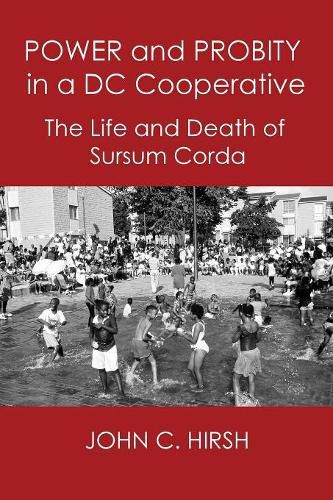Readings Newsletter
Become a Readings Member to make your shopping experience even easier.
Sign in or sign up for free!
You’re not far away from qualifying for FREE standard shipping within Australia
You’ve qualified for FREE standard shipping within Australia
The cart is loading…






This title is printed to order. This book may have been self-published. If so, we cannot guarantee the quality of the content. In the main most books will have gone through the editing process however some may not. We therefore suggest that you be aware of this before ordering this book. If in doubt check either the author or publisher’s details as we are unable to accept any returns unless they are faulty. Please contact us if you have any questions.
This book recounts in detail the negotiations, internal and external struggles, and the outcome of an attempt by HUD, the City of Washington, and several developers to acquire a Washington, D.C. apartment complex known as Sursum Corda. The book begins with an account of a particularly horrific murder that took place in Sursum Corda in 2004, and shows how it was used, in the press and elsewhere, to attack the Community as a whole, and to use it as a reason that the Community should be disbanded, and the land on which it stood be dedicated to other purposes.
It proceeds as a journal, kept intermittently between 2005 and 2017, by Professor John C. Hirsh of Georgetown University, who during that period directed an undergraduate tutorial program there in which Georgetown undergraduates travelled twice a week to instruct the K-6 children who live at Sursum Corda in the Language Arts, primarily in reading and writing. Because of his long association with the community he was appointed a non-voting (because non-resident) member of the Board that directs the Community affairs, as was his former student and friend Shiv Newaldass, a Georgetown graduate, whose family has long lived there.
Such take-overs as the one described here have become common across the country in recent years, and part of the interest of the book lies not only the story of what happened to Sursum Corda, but also in the implications it exposes as to how such negotiations are actually carried on, and the relative power of those who are involved.
$9.00 standard shipping within Australia
FREE standard shipping within Australia for orders over $100.00
Express & International shipping calculated at checkout
This title is printed to order. This book may have been self-published. If so, we cannot guarantee the quality of the content. In the main most books will have gone through the editing process however some may not. We therefore suggest that you be aware of this before ordering this book. If in doubt check either the author or publisher’s details as we are unable to accept any returns unless they are faulty. Please contact us if you have any questions.
This book recounts in detail the negotiations, internal and external struggles, and the outcome of an attempt by HUD, the City of Washington, and several developers to acquire a Washington, D.C. apartment complex known as Sursum Corda. The book begins with an account of a particularly horrific murder that took place in Sursum Corda in 2004, and shows how it was used, in the press and elsewhere, to attack the Community as a whole, and to use it as a reason that the Community should be disbanded, and the land on which it stood be dedicated to other purposes.
It proceeds as a journal, kept intermittently between 2005 and 2017, by Professor John C. Hirsh of Georgetown University, who during that period directed an undergraduate tutorial program there in which Georgetown undergraduates travelled twice a week to instruct the K-6 children who live at Sursum Corda in the Language Arts, primarily in reading and writing. Because of his long association with the community he was appointed a non-voting (because non-resident) member of the Board that directs the Community affairs, as was his former student and friend Shiv Newaldass, a Georgetown graduate, whose family has long lived there.
Such take-overs as the one described here have become common across the country in recent years, and part of the interest of the book lies not only the story of what happened to Sursum Corda, but also in the implications it exposes as to how such negotiations are actually carried on, and the relative power of those who are involved.